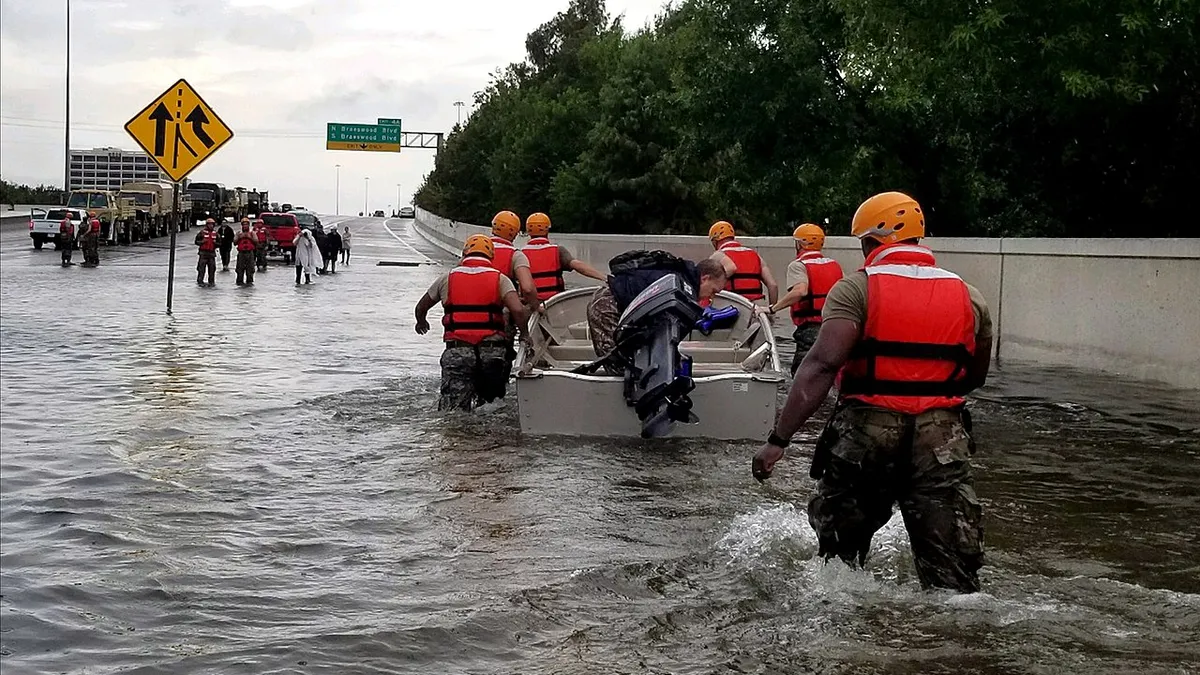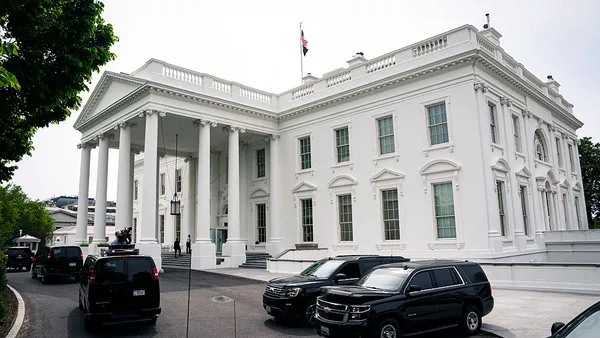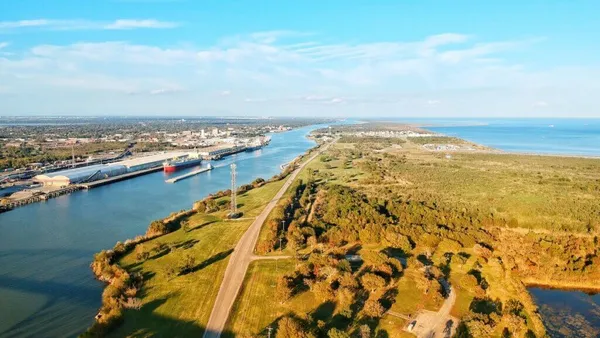Dive Brief:
-
U.S. Department of Transportation Secretary Elaine Chao has ordered $25 million in emergency Federal Highway Administration (FHWA) funds be released to the state of Texas, at its request, to help repair roads, highways and bridges damaged by Hurricane Harvey floodwaters, according to The Hill.
-
Local officials have reported that roads are showing signs of potential collapse, and according to KXAN and the Houston Chronicle, sinkholes have already closed several roads.
-
Chao directed the USDOT to provide whatever assistance Texas needs to restore surface transportation access post-Harvey, indicating that additional FHWA emergency funding could be headed to Houston in the weeks ahead.
Dive Insight:
FHWA's emergency relief fund is part of the Highway Trust Fund (HTF), which contributes to state surface transportation projects throughout the year. The emergency program has a $100 million annual authorization, but Congress can vote to add funds if necessary. By all accounts, Harvey-related damage to Texas roads, many of which are still under water, could easily use up its emergency fund allotment.
The HTF has been chronically underfunded by a federal gas tax that hasn't seen an increase in more than 20 years. Along with a potential hike in the gas tax, lawmakers have also suggested higher sales and tire taxes, along with per-mile driver fees, as ways to increase revenue streams for the HTF.
Earlier this year, Rep. Peter A. DeFazio, (D-OR), introduced a bill that would raise the federal gas tax by 1 cent each year. He said this would boost the HTF's coffers by $17 billion annually.
The states themselves have displayed less hesitation than federal lawmakers in raising their gas taxes. California raised its gas tax by 12 cents a gallon to help finance a $52 billion infrastructure program, and Indiana increased its gas tax by 10 cents per gallon to help pay for a five-year, $4.7-billion program of transportation and other public-asset repairs.
Federal lawmakers have long feared blowback from taxpayers if they were to increase the federal gas tax, but that may no longer be a risk. Indiana officials said its residents don't mind the extra spend if it will increase the quality of roads and bridges. The results of a national Bloomberg poll in July echoed those sentiments, with 55% of respondents saying they wouldn't mind paying more at the pump if it meant roads in their states saw improvements as a result.














